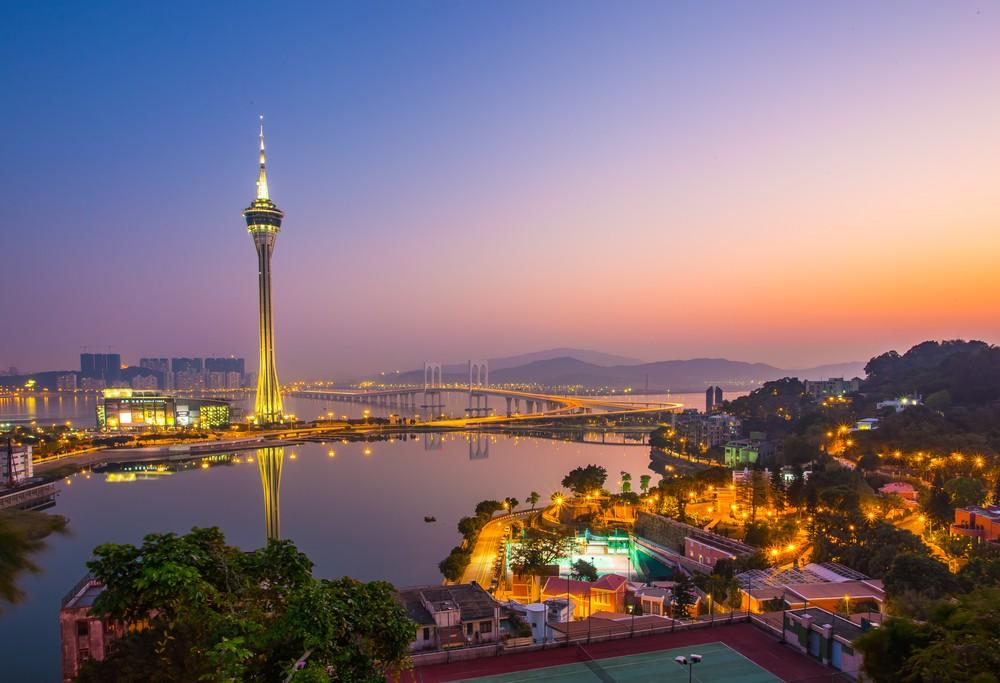For centuries, red, yellow and green were the dominant colors of Macau. They were the symbols of Portugal and they flew as flags in its enclave on China’s doorstep. But at the midnight hour between the 19. and On December 20, 1999, yellow and green disappeared from the cityscape on the Pearl River because Macau was reunited with China . And in their place came the red of the People’s Republic and the five-pointed yellow star. But until 2049, the Chinese Special Administrative Region will enjoy a right of autonomy and self-government, which it will certainly enjoy with relish until then. Macau is the “Las Vegas of the East” and, after a long period of immaturity during colonial oppression, is moving into an exciting future with its numerous casinos.

Since 1847, gambling has been a legal everyday life for people in this city-state, but only a minority of them can afford to go to roulette and to the tables of blackjack or Chinese dominoes. If you board the ferry to Macau in neighboring Hong Kong , you will exchange the lively life in the canyons of the skyscrapers for a completely different world in three quarters of an hour. Despite the abundance of temples of fortune, this city has retained its charm and cultural heritage in some areas.
In the old town, the other face of Macau presents itself with baroque churches, Chinese temples and the impressive façade of the Sao Paulo Cathedral, which fell victim to a fire in 1835. For a long time, the once three islands of Macau, which are now connected by landfills and bridges, served well-heeled merchants as the seat of their summer residences. It was the trade in tea, spices and, above all, silk that led to a certain prosperity and encouraged the colonial power Portugal to boost Macau’s infrastructure. But when the opium trade increasingly passed through Hong Kong in the middle of the 19th century, Macau threatened to sink into insignificance.

That changed with the decision of Portuguese Governor Francisco Guimaraes to legalize gambling in his city and allow betting. Today, Macau is the world’s number three gambler’s paradise after Las Vegas and Atlantic City, accounting for well over half of the tax revenue from casino revenue. While sitting in a casino, you can use your smartphone to control the bets placed.
But in the sprawling sea of houses at the mouth of the sluggishly flowing Pearl River, some oases of silence are hidden. For example, on the island of Coloane with Hac Sa beach on the South China Sea or in the numerous parks, where the magnolias bloom and the eucalyptus trees provide shade. One of the most popular destinations for locals and holidaymakers is the historic fortress of Monte Fort, where the Macau Museum invites you to take a stroll through the history of the city. The defiant facility was built to protect against the attacks of the Dutch.
A visual highlight of the city is the central Senate Square with its colorful stone mosaics in the shape of waves. Fountains, restaurants and cafés line the pedestrian zone. At the highest point of the city, the 17th-century Fort Guia with its lighthouse – the oldest on the Chinese coast – is not to be missed. The chapel in the fort with its Chinese and Western angels proclaims the peaceful coexistence of both cultures in this interesting city. The A-Ma Temple on the inner harbor was built in honor of a Taoist goddess.
Modern Macau reveals itself with the 338-meter-high tower and the convention and entertainment center with numerous restaurants. The impressive “The Venetian” surpasses even the largest casinos in Las Vegas with its colorful and dazzling ambience. A great show takes place here five times a week.
But behind the glittering backdrops of this illusory world of happiness, Macau still hides historic China with lotus blossoms on the ponds and the oracle of the number sticks in the temples.
Travel information Macau
| Form of government | Special administrative region |
|---|---|
| Currency | Pataca |
| Area | approx. 30.3 km² |
| Population | 646,800 (2015 est.) |
| Languages | Chinese |
| Electricity grid | 220 volts, 50 Hz |
| Area code | +853 |
| Time zone | UTC+8 |


